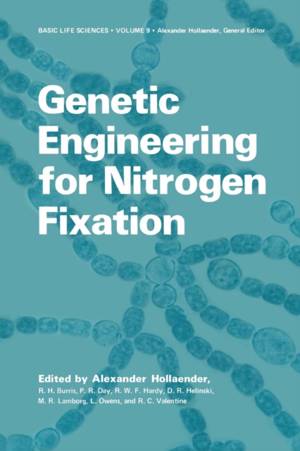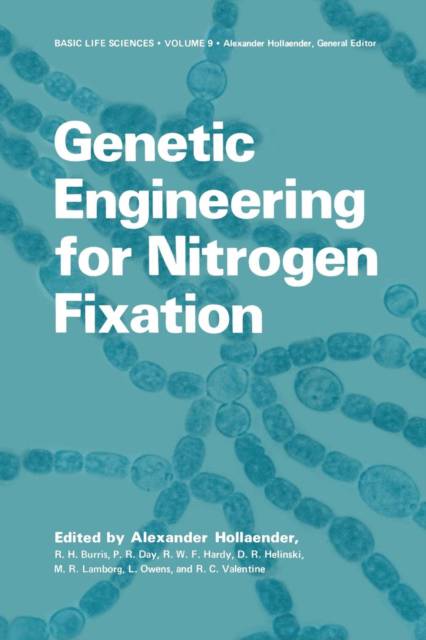
Je cadeautjes zeker op tijd in huis hebben voor de feestdagen? Kom langs in onze winkels en vind het perfecte geschenk!
- Afhalen na 1 uur in een winkel met voorraad
- Gratis thuislevering in België vanaf € 30
- Ruim aanbod met 7 miljoen producten
Je cadeautjes zeker op tijd in huis hebben voor de feestdagen? Kom langs in onze winkels en vind het perfecte geschenk!
- Afhalen na 1 uur in een winkel met voorraad
- Gratis thuislevering in België vanaf € 30
- Ruim aanbod met 7 miljoen producten
Zoeken
Genetic Engineering for Nitrogen Fixation
€ 167,95
+ 335 punten
Omschrijving
There is a time in scientific research when a number of developments coincide making it possible to progress with a tough and complicated problem. It is believed that such a time has come in the area of biological nitrogen fixation. A better understanding of photosynthesis, cell hybridization, plasmid, and gene transfer between cells not necessarily genetically related, have opened new avenues of research. New developments in traditional genetics, cell biology, biochemistry, including enzyme chemistry, and plant physi- ology have brought about the feeling this is a most appro- priate time to pull together the different approaches in a conference where the lines of research could be discussed and thus help to speed up developments in this area. What makes biological nitrogen fixation especially im- portant is the promise that a good understanding of the basic problem would help us to make organisms more amenable to fix nitrogen, not only in symbiosis with legumes, but also with other plant species and develop a wider variety of organisms with the ability to fix N - It will also 2 encourage a search for naturally occurring N2 fixing organ- isms other than the traditional N2 fixers. Some success has already been encountered in this area. Success in broadening the field of nitrogen fixing would help to increase food supply, especially in de- veloping countries which cannot afford to purchase synthetic nitrogen sources.
Specificaties
Betrokkenen
- Uitgeverij:
Inhoud
- Aantal bladzijden:
- 538
- Taal:
- Engels
- Reeks:
- Reeksnummer:
- nr. 9
Eigenschappen
- Productcode (EAN):
- 9781468408829
- Verschijningsdatum:
- 27/12/2012
- Uitvoering:
- Paperback
- Formaat:
- Trade paperback (VS)
- Afmetingen:
- 152 mm x 229 mm
- Gewicht:
- 734 g

Alleen bij Standaard Boekhandel
+ 335 punten op je klantenkaart van Standaard Boekhandel
Beoordelingen
We publiceren alleen reviews die voldoen aan de voorwaarden voor reviews. Bekijk onze voorwaarden voor reviews.








